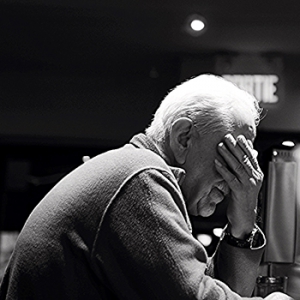 So, you’re in your 50’s, 60’s, or older. What do you wanna do when you grow up? (Or, how will you find purpose and meaning in retirement?)
So, you’re in your 50’s, 60’s, or older. What do you wanna do when you grow up? (Or, how will you find purpose and meaning in retirement?)
When I was in my 40’s, I was with a friend who shared my enjoyment of music. We were and still are “weekend warrior” musicians. We were visiting his mother and discussing our next gig: the kind where you load thousands of dollars of equipment into an overpriced used box truck and drive 100 miles to make $400 that’s split 20 ways after expenses. I’ll admit, it’s a hobby that doesn’t pay for itself.
Anyway, his mom chimed in with “When are you gonna grow up?” He responded: “Mom, we discussed this. I tried growing up and it didn’t work out.” One of the reasons his comment was funny — he’s a successful business owner who simply has a passion for playing music. It gave him a sense of purpose.
Retirement planning involves more than finances
What does this have to do with financial planning? Plenty. Planning your retirement is not just about building a supply of available funds. It’s about what you are going to do – what gives you purpose and meaning. Remember when you decide to leave the career you’ve had for perhaps several decades, you’re suddenly putting a stop to many of the things that largely defined you for many years. This can be a real shock to your system.
Think about it — the smiling models you see on the retirement community brochures aren’t really engaged in the activity they are portraying, are they? They’re working… as models, in this case. Perhaps they are working out of need, but most likely just to have something to do. In my experience, people in retirement initially experience a bit of euphoria by not having a schedule to keep. Being on the golf course more often and catching up on stuff is great! But somewhere between six and eighteen months a funk settles in.
 Lack of purpose, aka “the funk”
Lack of purpose, aka “the funk”
Former work buddies aren’t as open to meeting for lunch or taking a phone call in the middle of the day. Extra travel loses its luster. While not all people experience this “funk,” it is certainly common. Even people who are busy with other activities such as participating on boards, helping with fundraising and so on, have expressed to me that they lack a sense of purpose. That’s huge!
Lacking purpose and meaning affects your health in retirement
Dr. Patricia Boyle, a neuropsychologist at the Rush Alzheimer Disease Center in Chicago, followed nearly 1,000 people with an average age of 80 for up to 7 years. Dr. Boyle and her team’s research showed that those with a “high purpose” score as defined by the study were 2.4 times more likely to remain free of Alzheimer’s than those with a low score.
Another study, this one published in Psychological Science in 2014, suggests that having a sense of purpose could add years to your life. Researchers from Carleton University in Ottawa, Ontario and the University of Rochester in N.Y. tracked 7,000 American adults aged 20-75 for 14 years. They found that those who felt they had a purpose or direction in life outlived those who did not.
My own experience with clients makes these and other similar studies very easy to believe.
 How to find purpose and meaning in retirement
How to find purpose and meaning in retirement
I once sat in a lecture on retirement planning. One of the first things the speaker said was “retirement is a fallacy.” This statement really got my attention. The speaker continued to address the same issues we are talking about here, and inspired some thoughts on how to avoid the funk that comes with a lack of purpose in retirement:
- Don’t consider yourself retired! Rather, it’s a place for a new start.
- Engage socially and in person. Often, stopping work removes people from their social circles. If those circles are not practical to maintain because of distance or other factors, start attending clubs or organizations. And no, Facebook is not a replacement for face to face contact.
- Get to know people with diverse interests. You may discover an opportunity you never knew existed.
- Maintain or work on improving your health. This is the BIG ONE. Schedule physical activities. Go to the gym, participate in charity walks/runs. You’ll get exercise and meet new people.
- Learn something new. Your career doesn’t depend on it — so choose something that interests you personally but is unfamiliar to you.
- Connect or reconnect with your faith.
- Stay in tune with your mental health. If you experience the “funk” we spoke about, it might be depression. Like any ailment, it’s not a good idea to ignore it. Talk with a medical professional who may be able to help.
Like all things worthwhile – discovering your purpose and meaning in retirement may take time. But the benefits are real. You might have to “fake it ‘till you make it,” so don’t worry. If you’re within a few years of retiring, you’ll want to get started now!
March 2019




